| Home |
| Important Dates |
| Call for Paper |
| Paper Submission |
| Workshops |
| Special Issues |
| Accepted Papers |
| Program |
| Keynote Speakers |
| Organization Committee |
| Registration |
| Venue and Accommodation |
| Help Desk |
-
Prof. Fedor v. Fomin, University of Bergen, Norway
-
Prof. L. Harn, University of Missouri-Kansas City, USA
-
Prof. C.-C. Jay Kuo, University of Southern California, USA
-
Mr. Michael Wang, Enterprise Architect, Oracle, USA
-
Prof. Chunming Rong, University of Stavanger, Norway
Keynote Speakers
Prof. Fedor v. Fomin
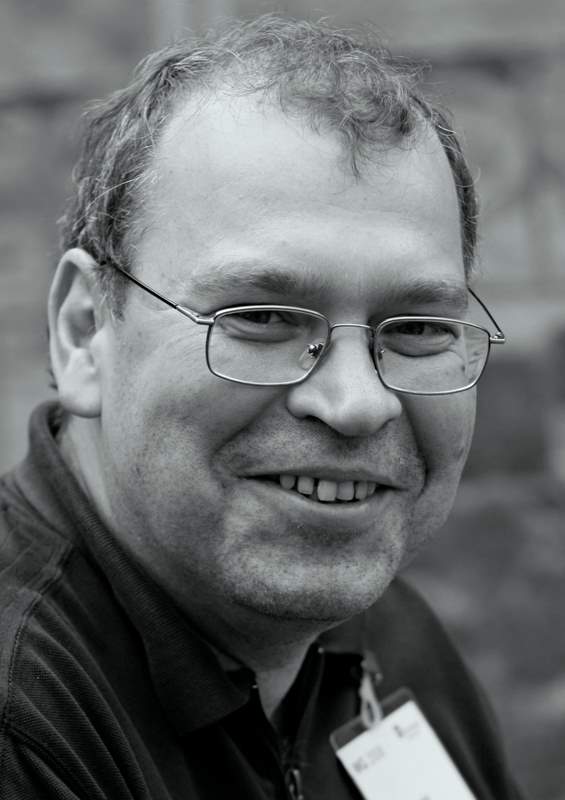
Fedor V. Fomin graduated from St. Petersburg State University. He hold several postdoc positions in Chile, Czech Republic and Germany. Since 2002, he is a professor in Algorithms, at the University of Bergen. His research interests are mainly in Algorithms and Combinatorics. He is a member of editorial boards of SIAM J. Discrete Math. and Algorithmica and he chaired or was a member of many conferences in Computer Science.
Speech Tilte: Kernelization algorithms
Abstract: Preprocessing or data reductions means reducing the input to something simpler by solving an easy part of the input and this is the type of algorithms used in almost every application. In spite of wide practical applications of preprocessing, a systematic theoretical study of such algorithms remains elusive. The framework of parameterized complexity can be used as an approach to analyse preprocessing algorithms. Input to parameterized algorithms include a parameter (in addition to the input) which is likely to be small, and this resulted in a study of preprocessing algorithms that reduce the size of the input to a pure function of the parameter(independent ofthe input size). Such type of preprocessing algorithms are called kernelization algorithms. In the talk we discuss some classical and new trends in the design of kernelization algorithms.
website: http://www.ii.uib.no/~fomin/index.html
Prof. L. Harn
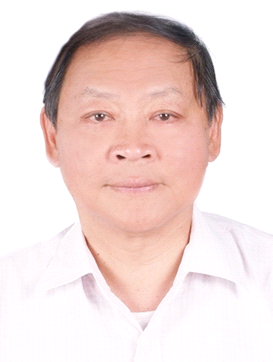
Dr. Lein Harn received his Bachelor of Science degree in Electrical Engineering from the National Taiwan University in 1977. In 1980, he received his MS in Electrical Engineering from the State University of New York-Stony Brook and in 1984 he received his doctorate degree in Electrical Engineering from the University of Minnesota. He joined as an Assistant Professor in the department of Electrical and Computer Engineering at the University of Missouri-Columbia in 1984 and in 1986, he moved to Computer Science and Telecommunication Program (CSTP) of University of Missouri-Kansas City (UMKC). While at UMKC he went on development leave to work in Racal Data Group in Florida for a year. His research interests are cryptography, network security and wireless communication security. He has published more than 100 papers on wireless and network security, digital signatures and cryptographic protocols. He has written two books on Security and Cryptography. During 2003-2009, he has given summer lectures at the Graduate School of Chinese Academy of Science, Beijing.
Speech Tilte: Secret Sharing and Its Applications
Abstract: Secret sharing was first proposed in 1979 by Shamir and Blakley separately. Secret sharing has become a very important cryptographic tool used in multi-party computing, e-voting, distributed computing, etc. In this talk, I will outline new research problems and solutions when secret reconstruction is performed in asynchronous channels. It will include rational secret sharing, secure secret reconstruction, multi-secret sharing, cheater detection and identification. In addition, new applications using secret sharing to support secure group communication, secure multicast transmission will also be addressed.
website: http://h.web.umkc.edu/harnl/index.html
Prof. C.-C. Jay Kuo
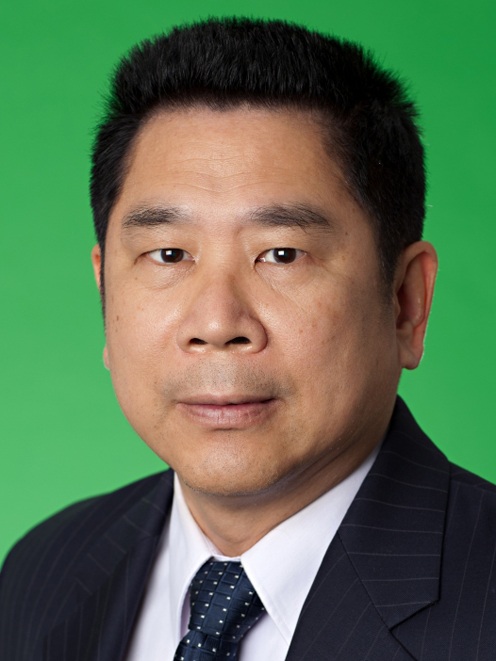
Dr. C.-C. Jay Kuo received the Ph.D. degree from the Massachusetts Institute of Technology in 1987. He is now with the University of Southern California (USC) as Director of Signal and Image Processing Institute and Professor of EE, CS and Mathematics. His research interests are in the areas of digital media processing, multimedia compression, communication and networking technologies, and embedded multimedia system design. Dr. Kuo is a Fellow of IEEE and SPIE. Dr. Kuo has guided about 115 students to their Ph.D. degrees and supervised 20 postdoctoral research fellows. Currently, his research group at USC consists of around 30 Ph.D. students (see website http://viola.usc.edu), which is one of the largest academic research groups in multimedia technologies. He is a co-author of about 200 journal papers, 850 conference papers and 10 books. Dr. Kuo is a Fellow of AAAS, IEEE and SPIE. He is Editor-in-Chief for the IEEE Transactions on Information Forensics and Security and Editor Emeritus for the Journal of Visual Communication and Image Representation (an Elsevier journal). He was Editor-in-Chief for the Journal of Visual Communication and Image Representation in 1997-2011. He was on the Editorial Board of the IEEE Signal Processing Magazine in 2003-2004, IEEE Transactions on Speech and Audio Processing in 2001-2003, IEEE Transactions on Image Processing in 1995-98 and IEEE Transactions on Circuits and Systems for Video Technology in 1995-1997.
Dr. Kuo received the National Science Foundation Young Investigator Award (NYI) and Presidential Faculty Fellow (PFF) Award in 1992 and 1993, respectively. He received the best paper awards from the Multimedia Communication Technical Committee of the IEEE Communication Society in 2005, from the IEEE Vehicular Technology Fall Conference (VTC-Fall) in 2006, and from IEEE Conference on Intelligent Information Hiding and Multimedia Signal Processing (IIH-MSP) in 2006. He was an IEEE Signal Processing Society Distinguished Lecturer in 2006, a recipient of the Okawa Foundation Research Award in 2007, the recipient of the Electronic Imaging Scientist of the Year Award in 2010, and the holder of the Fulbright-Nokia Distinguished Chair in Information and Communications Technologies from 2010-2011.
Speech Tilte: Depth-Assisted Intelligent Video
Abstract: Intelligent video, including video understanding, indexing and retrieval, is a very challenging computer vision problem and a good application candidate of cloud computing. When a scene is captured by a single camera, the 3D world space is projected to a 2D image space. A significant amount of information is lost during the projection process. There is a recent trend to put more emphasis on acquiring the depth information so as to simplify the video processing and understanding tasks. The depth information can be obtained by a depth camera, a stereo camera or some depth-inference algorithms. These are very hot topics due to the popularity of the Microsoft Kinetic and the emergence of 3D video contents such as 3D movies and 3DTV. In this talk, I will give an overview talk on the usefulness of the depth information in several video analysis problems and future research opportunities and challenges.
website:http://viola.usc.edu/People/cckuo/
Mr. Michael Wang
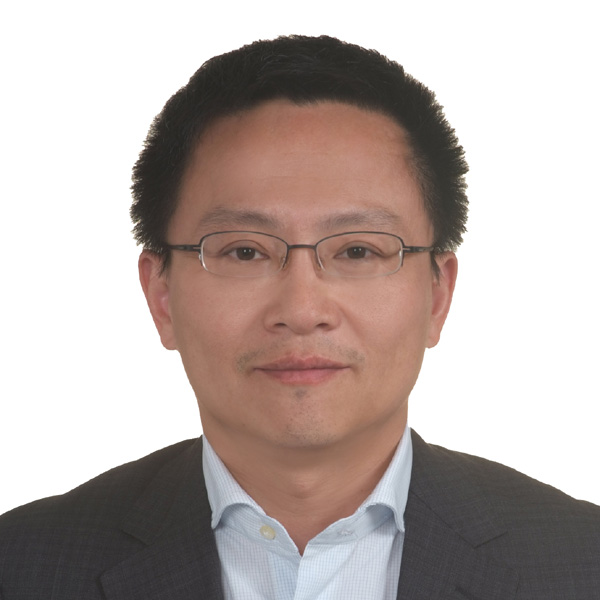
Michael Wang is senior enterprise architect in Oracle Greater China, based in Taiwan bringing more than 20 years extensive experience in ICT industries to Oracle. He is currently responsible to act as trusted advisor to major customers in GC area about how to adopt emerging technologies (such as cloud computing) and critical business initiatives (such as big data) into customers’ complex, large-scale digital environment. In addition, Mr. Wang plays a critical, pivotal role to integrate various Oracle product lines to provide customers a complete, architectural view and approach to future vision. He has been also recognized as guest speaker and thought leader frequently invited by many business and technology occasions. Prior to join Oracle, Mr. Wang has been in various leadership roles in several large, multi-national companies across high-tech, software, consulting, and telecommunication industries. Mr. Wang held a master degree in manufacturing engineering from Northwestern University.
Additional Information:
Certifications: ISO 9001 Lead Assessor, PMP, CPIM
Language: Fluent in English, Mandarin and Taiwanese
Speech Tilte:A mobile, cloud, and social-enabled future
Abstract:During the presentation, I would like to share with all the audience the observations, factors driving new innovations that may change how people interact with technologies and how organizations operate, and update what Oracle is undertaking for those upcoming future.
Prof. Chunming Rong
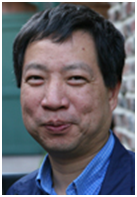
Prof. Chunming Rong is head of the Center for IP-based Service Innovation (CIPSI) at the University of Stavanger (UiS) in Norway. The CIPSI has the mission to promote cross-fertilization between several research fields to facilitate design and delivery of large-scale and complex IP-based services required by many application areas. He is also visiting chair professor at Tsinghua University (2011 – 2013) and served also as an adjunct professor at the University of Oslo 2005-2009. He spent one sabbatical year as visiting professor at the Stanford University 2009-2010. His research interests include cloud computing, big data analysis, security and privacy. He is co-founder and chairman of the Cloud Computing Association (CloudCom.org) and its associated conference and workshop series. He is member of the IEEE Cloud Computing Initiative, and member of Cloud Publications Steering Committee, and IEEE Study Group on Cloud Standard and co-chairs the IEEE Technical Area of Cloud Computing, in TCSC (Technical Committee on Scalable Computing). He is the co-Editors-in-Chief of the Journal of Cloud Computing by Springer. He received award Editor's Choice in Discrete Mathematics in 1999. He coauthored a book titled "Security in Wireless Ad Hoc and Sensor Networks" published by John Wiley & Sons in 2009. Prof. Rong has extensive experience in managing R&D projects funded by both industry and funding agencies, such as the Norwegian Research Council and the EU Framework Programs.
Speech Tilte:Cloud Security and Service Accountability
Abstract: Cloud Computing makes data truly mobile and a user can simply access a chosen cloud with any internet accessible device. In Cloud Computing, IT-related capabilities are provided as services, accessible without requiring detailed knowledge of the underlying technology. Thus, many mature technologies are used as components in Cloud Computing, but still there are many unresolved and open problems. Security in the cloud domain is considered as one of the top challenges. Cloud and IT service providers should be responsible for the data of their customers and users. However, accountability frameworks for distributed IT services is current still absent and makes it difficult for users to understand, influence and determine how their service providers honor their obligations. In the proposed EU A4Cloud project, we will create solutions to support users in deciding and tracking how their data is used by cloud service providers. By combining methods of risk analysis, policy enforcement, monitoring and compliance auditing with tailored IT mechanisms for security, assurance and redress.
website: www.chunming.net